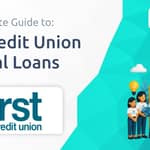
Paying off a personal loan early isn’t just a financial milestone; it’s a journey toward greater freedom, peace of mind, and long-term wealth. With the right plan, you can take control of your debt and accelerate your path to financial independence.
Eliminating debt ahead of schedule offers multiple rewards. First and foremost, you’ll enjoy significantly reduce the loan term, freeing up monthly cash flow for other goals. Early payoff also translates to less interest paid overall, putting more money back in your pocket. Finally, being debt-free can improve your mental well-being, allowing you to focus on building savings, investing, or funding life’s milestones.
Implementing a systematic approach is key to making progress. Consider these foundational tactics:
Switching to a biweekly schedule is one of the simplest yet most powerful ways to accelerate your payoff. By making half your payment every two weeks, you effectively make one extra payment each year without feeling it in your budget.
Below is an illustrative comparison of a standard monthly plan versus a biweekly approach on a $5,000 loan at 6% APR:
Whenever you receive unplanned income—like a holiday bonus or tax refund—consider directing at least a portion toward your loan balance. This strategy can accelerate payoff significantly over time. Always apply windfalls directly to the principal and verify with your lender that these funds won’t simply prepay future interest.
In addition, rounding up by just a few dollars each month can add up. For example, rounding $300 to $320 adds an extra $240 per year—enough to shave off months of payments and save dozens of dollars in interest.
Refinancing your personal loan can be a game-changer when market conditions and your credit profile align. Start by reviewing your current APR, outstanding balance, and any associated fees. Then shop around for a new lender offering better terms.
Always calculate total cost savings by comparing closing fees and the new interest schedule. If the math checks out, refinancing could speed up your payoff and reduce what you owe.
Creating room in your monthly budget is essential for accelerating loan payoff. Start by auditing discretionary expenses—like dining out, streaming services, and subscription boxes. Even modest cuts can free up extra cash for debt reduction.
Before deploying every extra dollar into debt, ensure you have a solid emergency buffer. Experts recommend at least $1,000 in a starter fund, then gradually build up to maintain three to six months of living expenses. This cushion prevents you from tapping high-interest credit cards during unexpected setbacks.
While speeding up your payoff is laudable, keep these caveats in mind:
Prepayment Penalties: Some loans carry fees for early payoff. Always check for prepayment penalties first by reviewing your agreement or calling your lender. Not all lenders impose these fees, but confirming in advance protects your savings.
Credit Score Impact: Paying off a loan early can temporarily lower your credit mix, causing a small score dip. For most borrowers with diverse accounts, this effect is minimal and short-lived.
Opportunity Cost: If you have higher-interest debt—like credit cards—or critical savings goals (e.g., retirement, down payment), it may be wiser to allocate extra funds elsewhere. Compare interest rates and personal priorities before deciding.
Maintaining momentum is easier when you can see real progress. Set clear milestones—such as paying off each $1,000 increment—and celebrate small wins.
Use a spreadsheet or budgeting app to log payments. Highlight each milestone with a visual cue, like a green checkmark or progress bar. This sense of accomplishment fuels ongoing motivation.
Additionally, consider setting up a small reward system. For example, for every three months of consistent extra payments, treat yourself to a modest indulgence—such as a special meal or a movie night. These rewards reinforce positive habits without derailing your financial plan.
Paying off your personal loan early requires intention, discipline, and smart planning. By leveraging strategies like biweekly payments, rounding up, applying windfalls, and potentially refinancing, you can verify payment application with your lender and maximize savings. Always balance debt repayment with emergency savings and higher-interest obligations to make an informed, sustainable decision.
With these actionable insights and a clear roadmap, you’re equipped to accelerate your debt payoff, reduce interest burdens, and move confidently toward a debt-free future.
References













